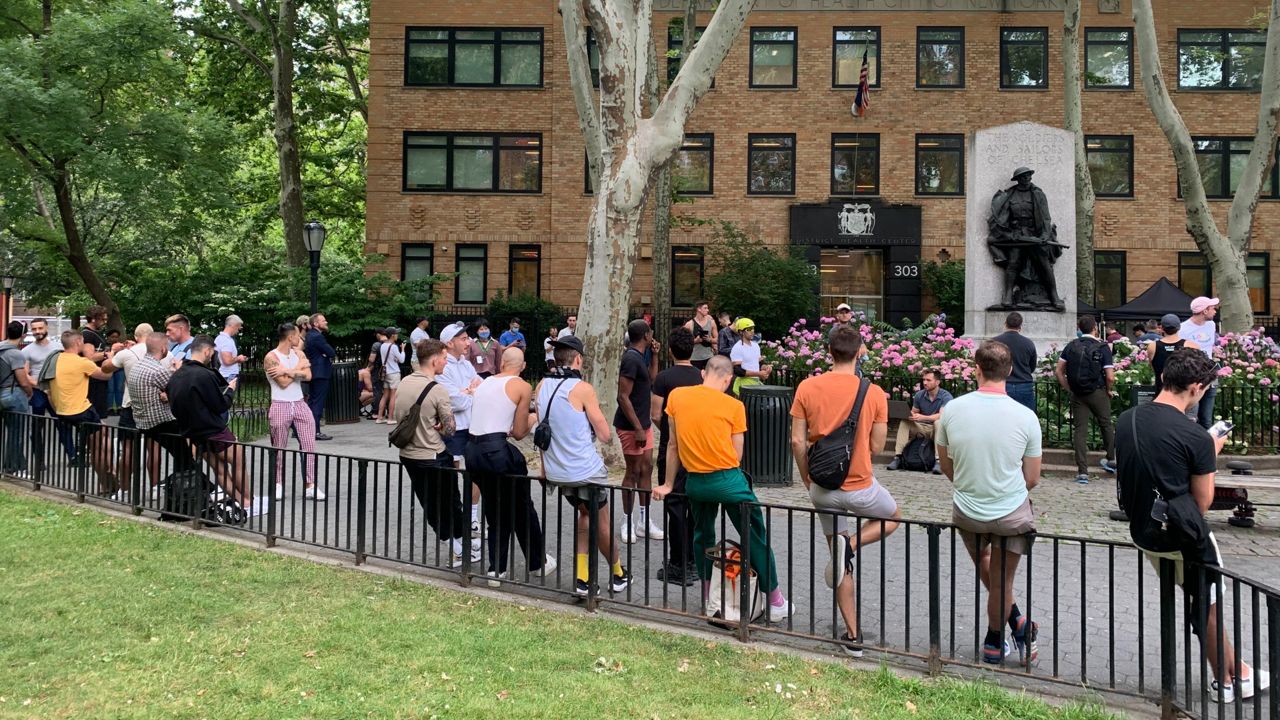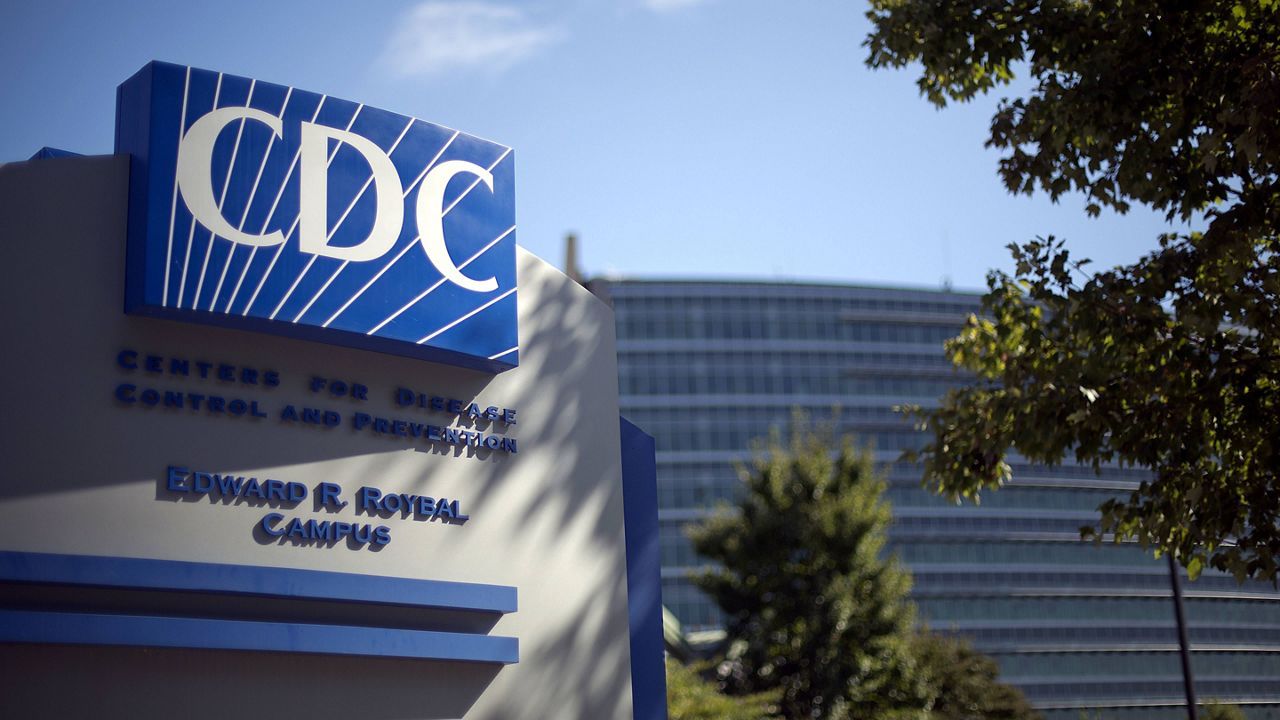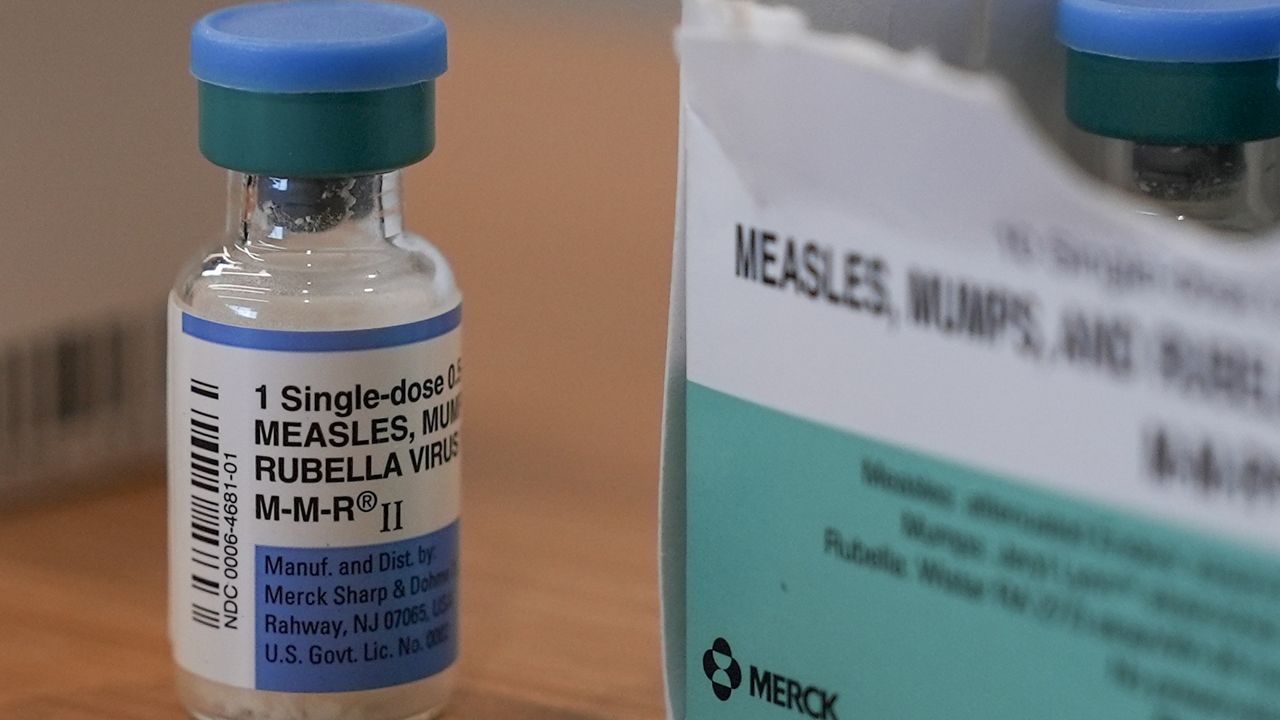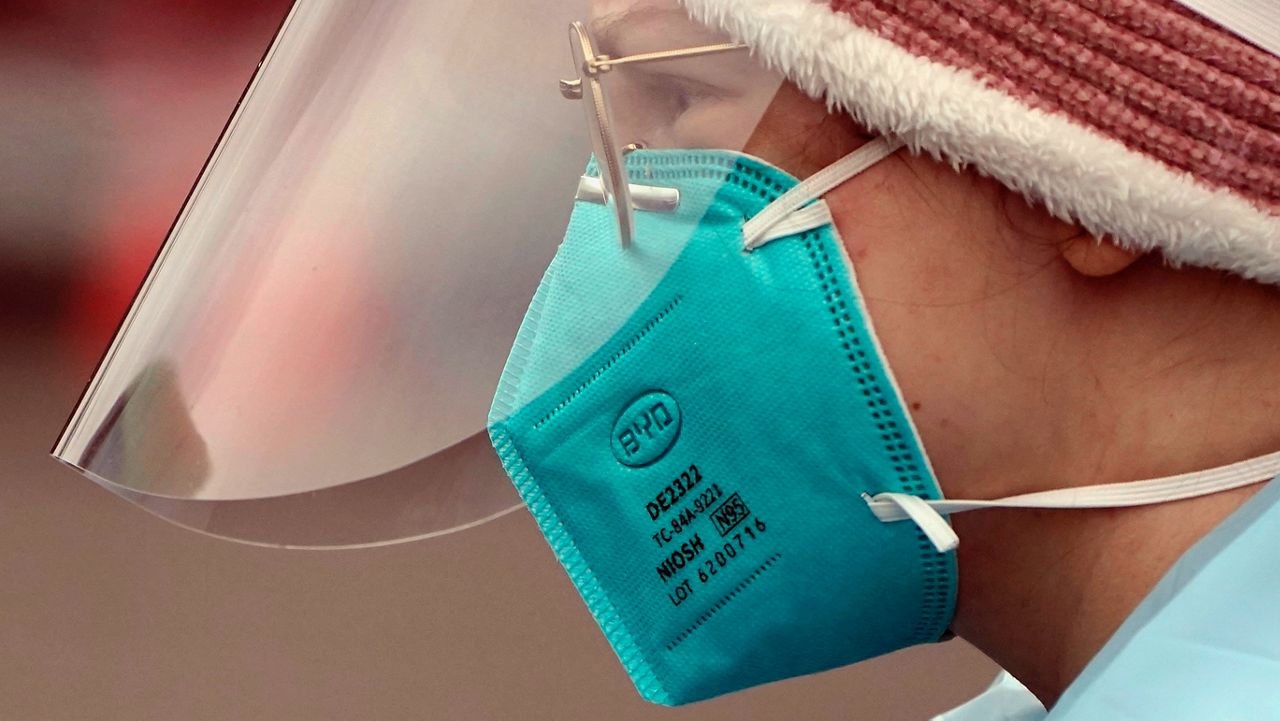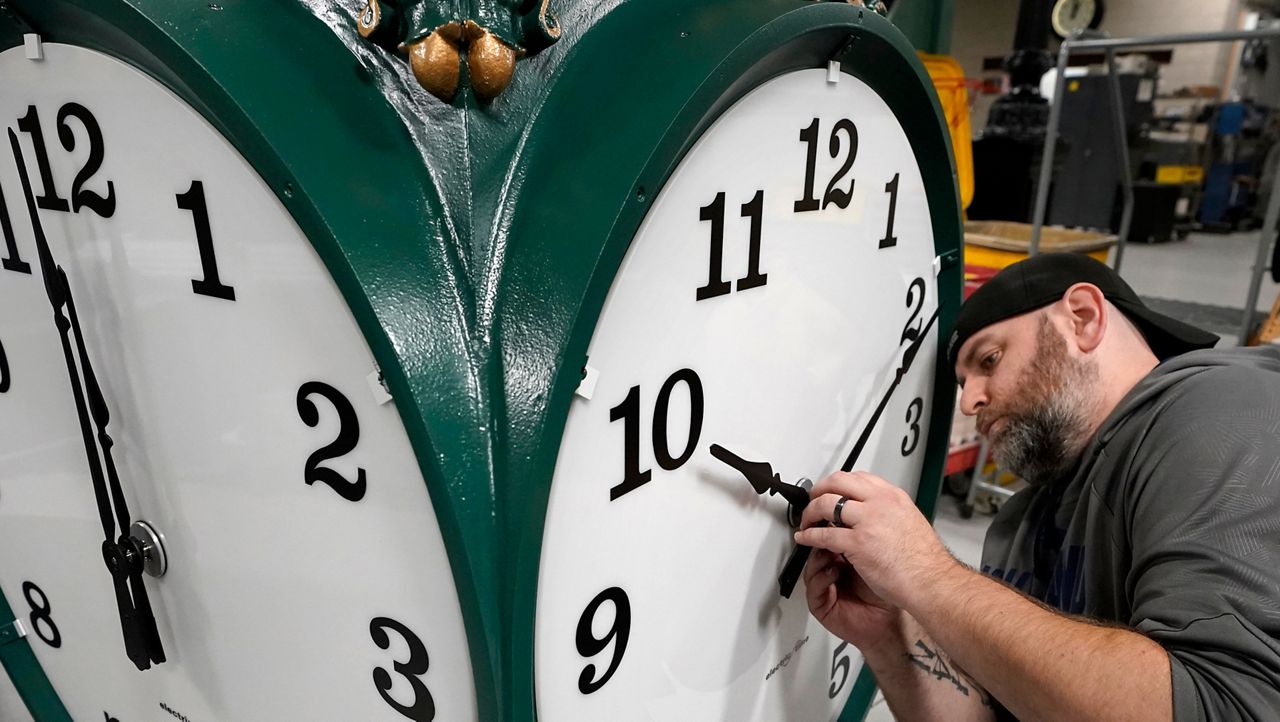NEW YORK — The city’s health department announced the opening of a monkeypox vaccine clinic on Thursday for patients who may have been exposed to the virus, the department said — but its rollout was plagued by long lines and a lack of supply to meet demand for walk-in appointments.
The health department had originally said appointments for vaccination were recommended and could be made online, and limited walk-ins would accepted, but on Thursday afternoon, they announced on Twitter that no more walk-ins were accepted due to high demand, and added that all appointments were filled through Monday.
"We hope to make more appointments available soon. We are in talks with the CDC to obtain more doses and are looking into how we can boost our capacity citywide," the department said.
Manhattan Borough President Mark Levine criticized the city's distribution, saying people had "literally been turned away" and calling on the federal government to up its allocation of the monkeypox vaccine to the city.
The temporary clinic will offer New Yorkers two-dose of the JYNNEOS vaccine at the Chelsea Sexual Health clinic at 303 Ninth Avenue in Manhattan. The vaccine requires two doses, four weeks apart.
“As I have said since day one, we are prepared, not panicked, and this monkeypox vaccination site is one more critical tool to keep New Yorkers healthy,” Mayor Eric Adams said. “Starting today, eligible New Yorkers who may have been exposed to monkeypox can now get vaccinated to stay safe and slow the spread.”
According to the department, anyone is at risk of the virus, but the city says most cases in the recent outbreak are among gay, bisexual or other men who have sexual relations with men, putting this group at a higher risk of exposure.
The city’s new vaccine clinic expands eligibility to gay, bisexual and other men, whether cisgender or transgender, who are age 18 and older who have had multiple partners in the last two weeks.
“Members of the LGBTQ+ community have always been fierce advocates for their rights, including, and especially, when it comes to receiving timely access to health care,” Health Commissioner Dr. Ashwin Vasan said. “Vaccination against monkeypox is a critical tool to allow New Yorkers to protect themselves and to help slow the spread of monkeypox in our city.”
Thirty people in the city have tested positive for orthopoxvirus, according to the health department, which called those cases “likely monkeypox.”
Monkeypox can be spread through direct contact with a rash or sores of someone who has the virus, through contact with clothing or bedding for that has been used by someone infected with the virus, or from respiratory droplets passed in “prolonged close contact,” the city said.
The department said the most common symptom is a rash that can look like pimples or blisters. Other early symptoms for monkeypox may include fever, headache, swollen lymph nodes and exhaustion.
The department recommends that in order to prevent exposure, people should not engage in sex or other close physical contact if you or your partners are sick or have an unexpected rash or sores on the body.




